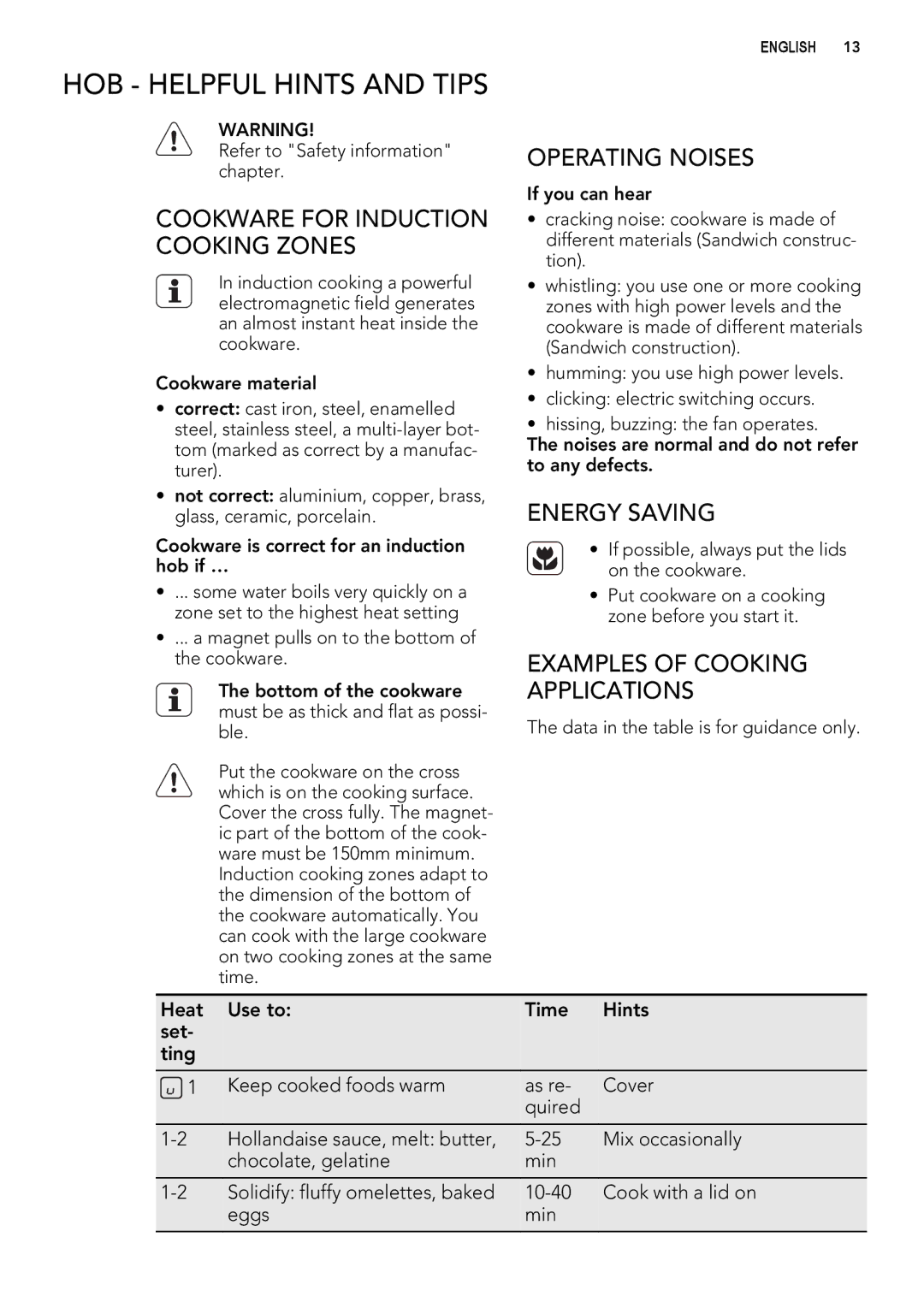
HOB - HELPFUL HINTS AND TIPS
WARNING!
Refer to "Safety information" chapter.
COOKWARE FOR INDUCTION COOKING ZONES
In induction cooking a powerful electromagnetic field generates an almost instant heat inside the cookware.
Cookware material
•correct: cast iron, steel, enamelled steel, stainless steel, a
•not correct: aluminium, copper, brass, glass, ceramic, porcelain.
Cookware is correct for an induction hob if …
•... some water boils very quickly on a zone set to the highest heat setting
•... a magnet pulls on to the bottom of the cookware.
The bottom of the cookware must be as thick and flat as possi- ble.
Put the cookware on the cross which is on the cooking surface. Cover the cross fully. The magnet- ic part of the bottom of the cook- ware must be 150mm minimum. Induction cooking zones adapt to the dimension of the bottom of the cookware automatically. You can cook with the large cookware on two cooking zones at the same time.
ENGLISH 13
OPERATING NOISES
If you can hear
•cracking noise: cookware is made of different materials (Sandwich construc- tion).
•whistling: you use one or more cooking zones with high power levels and the cookware is made of different materials (Sandwich construction).
•humming: you use high power levels.
•clicking: electric switching occurs.
•hissing, buzzing: the fan operates.
The noises are normal and do not refer to any defects.
ENERGY SAVING
• If possible, always put the lids on the cookware.
•Put cookware on a cooking zone before you start it.
EXAMPLES OF COOKING APPLICATIONS
The data in the table is for guidance only.
Heat | Use to: | Time | Hints |
set- |
|
|
|
ting |
|
|
|
1 | Keep cooked foods warm | as re- | Cover |
|
| quired |
|
Hollandaise sauce, melt: butter, | Mix occasionally | ||
| chocolate, gelatine | min |
|
Solidify: fluffy omelettes, baked | Cook with a lid on | ||
| eggs | min |
|
|
|
|
|
